National
Conservative report accuses Trudeau gov’t of ignoring Chinese interference because it helped Liberals
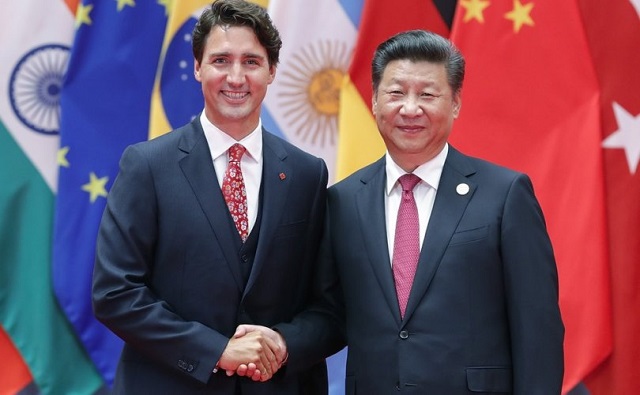
Chinese President Xi Jinping (right) shakes hands with Canadian Prime Minister Justin Trudeau to the G20 Summit on September 4, 2016 in Hangzhou, China.
From LifeSiteNews
By
‘Conservatives note that the Liberal government knew the Communist Party of China was interfering in Canada’s democracy for years and had they not been the beneficiary of this foreign interference the Liberals may have taken action…’ the report stated
Conservatives have accused Trudeau’s Liberal government of having ignored foreign interference because it was to their political benefit.
On October 24, Conservative Member of Parliament (MP) John Brassard published a report from Conservatives accusing the Liberal government under Prime Minister Justin Trudeau of ignoring Chinese interference in Canadian elections through China’s donations to the prime minister’s family foundation, the Pierre Elliot Trudeau Foundation.
“Conservatives note that the Liberal government knew the Communist Party of China was interfering in Canada’s democracy for years and had they not been the beneficiary of this foreign interference the Liberals may have taken action, rather than reacting to sustained public and political pressure,” the report stated.
“It is clear, through testimony heard by the committee from current and former members of the Trudeau Foundation, that the Foundation had no bylaws for foreign interference, no oversight of donations, and no due diligence done of donations,” it continued.
The report referenced a $140,000 donation by a Chinese billionaire, Zhang Bin, who has direct ties to Beijing. Bin was also photographed at a 2016 fundraiser with Trudeau. Furthermore, Trudeau’s brother, Sacha, was pictured accepting the donation from Bin on behalf of the Trudeau Foundation.
“Seemingly, it was the perfect conduit for a foreign dictatorship to influence Prime Minister Justin Trudeau,” the report stated. “The interference operation was proven successful as the two cutouts had direct access to the Prime Minister within five months of the donation.”
Following public outcry over the donation, Pascale Fournier, Former President and Executive Officer at the Trudeau Foundation, testified that “because of the allegations in the media, it would be best for the Foundation to repay the donation.”
According to Edward Johnson, chair of the board and founding member of the Foundation, the money was returned, and the deposit was confirmed in writing.
Similarly, Morris Rosenberg, former President and CEO of the Trudeau Foundation, claimed that donors never requested that the Foundation put them in contact with the Trudeau government. He added that he believed that Bin took a picture with Trudeau because “he wanted a photo with the prime minister to show to his friends.”
“In light of the evidence, the committee cannot take a definitive position on this case,” the committee ruled after the testimonies.
However, Conservatives pointed out that, “The irony is not lost on Conservatives that the beneficiary of a foreign interference campaign of disinformation perpetrated by the Communist Party of China would partake in a committee study pertaining to the very foreign interference campaign that helped him get elected.”
“This reinforces the fact that this Liberal government has an utter disregard for ethics and conflicts of interest,” the Conservative report continued.
As a result, the report recommended that, “the Government of Canada undertake a forensic audit of the Trudeau Foundation.”
The Foundation labels itself as “an independent and non-partisan charity established in 2001 as a living memorial to the former prime minister.”
Pierre Trudeau is the late father of Prime Minister Justin Trudeau and was prime minister from 1968 until 1984 except for a brief lapse from 1979 to 1980. He was known for his praise of the major totalitarian political systems of his day.
The Trudeau Foundation has undergone increased scrutiny regarding its connection with China, and the examination will continue. In late September, MPs from the House of Commons unanimously voted to have the country’s Auditor General investigate the $125 million taxpayer endowment given to help found the Trudeau Foundation in 2001.
This investigation comes just months after Canadian MPs from the House of Commons Public Accounts voted to begin an examination after a report surfaced detailing how the non-profit group received a $200,000 donation alleged to be connected to the Chinese Communist Party (CCP). Following the release of this report, the entire board of directors, including the president and CEO, of the Trudeau Foundation resigned.
Economy
Young Canadians are putting off having a family due to rising cost of living, survey finds

From LifeSiteNews
An April study has found that 42% of Gen Z and 39% of Millennials are putting off starting families due to a lack of work-life balance spurred by an increase in the cost of living.
A survey has found that more Canadians are delaying starting a family due to a lack of work-life balance spurred by the rising cost of living.
According to an April 24 Express Employment Professionals-Harris Poll survey, one-third of employed job seekers stated that they are putting off starting a family due to a lack of work-life balance, including 42% of Gen Z and 39% of Millennials.
“The most common thing I hear from candidates who are putting off starting a family is that the cost of living is too high,” Jessica Culo, an Express franchise owner in Edmonton, Alberta stated.
“We definitely hear more and more that candidates are looking for flexibility, and I think employers understand family/work balance is important to employees,” she added.
Two-thirds of respondents further stated that they believe it’s essential that the company they work for prioritizes giving its employees a good work-life balance as they look to start a family. This included 77% of Gen Z and 72% of Millennials.
The survey comes as Canada’s fertility rate hit a record-low of 1.33 children per woman in 2022. According to the data collected by Statistics Canada, the number marks the lowest fertility rate in the past century of record keeping.
Sadly, while 2022 experienced a record-breaking low fertility rate, the same year, 97,211 Canadian babies were killed by abortion.
Canadians’ reluctance or delay to have children comes as young Canadians seem to be beginning to reap the effects of the policies of Prime Minister Justin Trudeau’s government, which has been criticized for its overspending, onerous climate regulations, lax immigration policies, and “woke” politics.
In fact, many have pointed out that considering the rising housing prices, most Canadians under 30 will not be able to purchase a home.
Similarly, while Trudeau sends Canadians’ tax dollars oversees and further taxes their fuel and heating, Canadians are struggling to pay for basic necessities including food, rent, and heating.
A September report by Statistics Canada revealed that food prices are rising faster than the headline inflation rate – the overall inflation rate in the country – as staple food items are increasing at a rate of 10 to 18 percent year-over-year.
While the cost of living has increased the financial burden of Canadians looking to rear children, the nation’s child benefit program does provide some relief for those who have kids.
Under the Canadian Revenue Agency’s benefit, Canadians families are given a monthly stipend depending on their family income and situation. Each province also has a program to help families support their children.
Young Canadians looking to start a family can use the child and family benefits calculator to estimate the benefits which they would receive.
Regardless of the cost of raising children, the Catholic Church unchangeably teaches that it is a grave sin for married couples to frustrate the natural ends of the procreative act through contraceptives, abortion or other means.
Such wisdom has even bled into the mainstream in recent years, with non-Catholic pundits like America’s Tucker Carlson advocating that young people “Get married when you’re too young, have more kids than you can afford, take a job you’re not qualified for, live boldly.”
Economy
Today’s federal government—massive spending growth and epic betting
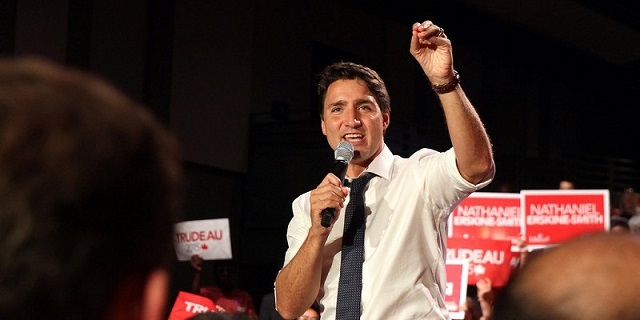
From the Fraser Institute
One can legitimately ask whether the federal government has simply grown too big, complex and unwieldy to be managed at all
The Trudeau government’s 2024 budget landed with a thud, evoking little enthusiasm and drawing spirited criticism from business leaders, investors, provincial premiers and (of course) the opposition parties. Several elements of the budget have garnered outsized attention, notably the pledge to run endless deficits, the imposition of higher capital gains taxes, and various new programs and policy initiatives intended to address Canada’s housing crisis.
But the budget includes a few eye-catching data points that have been downplayed in the subsequent political and media commentary.
One is the sheer size of the government. The just-completed fiscal year marked a milestone, as Ottawa’s total spending reached half a trillion dollars ($498 billion, to be exact, excluding “actuarial losses”). According to the budget, the government will spend $95 billion more in 2024-25 than it planned only three years ago, underscoring the torrid pace of spending growth under Prime Minister Trudeau.
One can legitimately ask whether the federal government has simply grown too big, complex and unwieldy to be managed at all, even if we assume the politicians in charge truly care about sound management. How many parliamentarians—or even cabinet ministers—have a sufficient understanding of the sprawling federal apparatus to provide meaningful oversight of the vast sums Ottawa is now spending?
The ArriveCAN scandal and chronic problems with defence procurement are well-known, but how good a job is the government doing with routine expenditure programs and the delivery of services to Canadians? The auditor general and the Parliamentary Budget Officer provide useful insights on these questions, but only in a selective way. Parliament itself tends to focus on things other than financial oversight, such as the daily theatre of Question Period and other topics conducive to quick hits on social media. Parliament isn’t particularly effective at holding the government to account for its overall expenditures, even though that ranks among its most important responsibilities.
A second data point from the budget concerns the fast-rising price tag for what the federal government classifies as “elderly benefits.” Consisting mainly of Old Age Security and the Guaranteed Income Supplement, these programs are set to absorb $81 billion of federal tax dollars this year and $90 billion by 2026-27, compared to $69 billion just two years ago. Ottawa now spends substantially more on income transfers to seniors than it collects in GST revenues. At some point, a future government may find it necessary to reform elderly benefit programs to slow the relentless cost escalation.
Finally, the budget provides additional details on the Trudeau government’s epic bet that massive taxpayer-financed subsidies will kickstart the establishment of a major, commercially successful battery and electric vehicle manufacturing “supply chain” in Canada. The government pledges to allocate “over $160 billion” to pay for its net-zero economic plan, including $93 billion in subsidies and incentives for battery, EV and other “clean” industries through 2034-35. This spending, the government insists, will “crowd in more private investment, securing Canada’s leadership” in the clean economy.
To say this is a high-risk industrial development strategy is an understatement. Canada is grappling with an economy-wide crisis of lagging business investment and stagnant productivity. Faced with this, the government has chosen to direct hitherto unimaginable sums to support industries that make up a relatively small slice of the economy. Even if the plan succeeds, it won’t do much to address the bigger problems of weak private-sector investment and slumping productivity growth.
Author:
-

 Alberta1 day ago
Alberta1 day agoAlberta’s vision for passenger rail
-
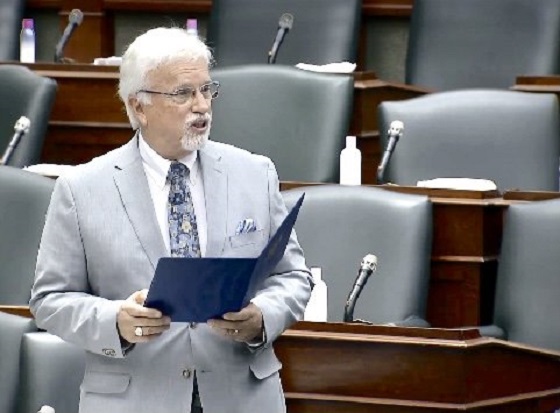
 COVID-192 days ago
COVID-192 days agoFormer Canadian lawmaker has no regrets about refusing COVID shot despite losing his job
-

 COVID-192 days ago
COVID-192 days agoPeckford: Hallelujah! Supreme Court of Canada to hear Newfoundland and Labrador charter case
-

 Alberta1 day ago
Alberta1 day agoThree Calgary massage parlours linked to human trafficking investigation
-

 Uncategorized1 day ago
Uncategorized1 day agoMaking Alberta a geothermal energy leader
-

 Alberta2 days ago
Alberta2 days agoCanada’s postal service refuses to help with Trudeau’s gun ban buyback program: report
-
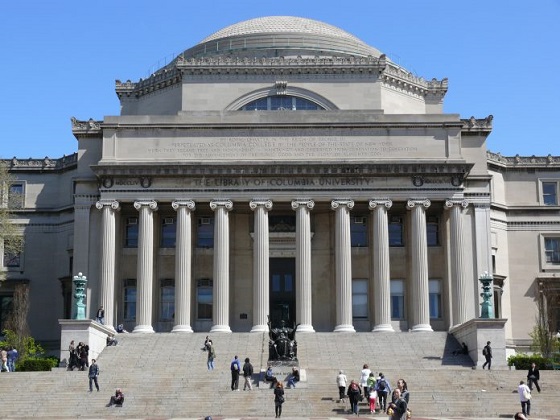
 conflict18 hours ago
conflict18 hours agoColumbia on Lockdown After pro-Palestinian Protesters Take Over Building, Hold Janitors Hostage
-
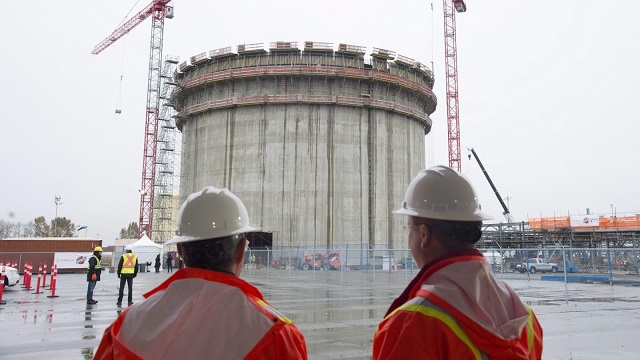
 Canadian Energy Centre18 hours ago
Canadian Energy Centre18 hours agoNorth America LNG project cost competitiveness









